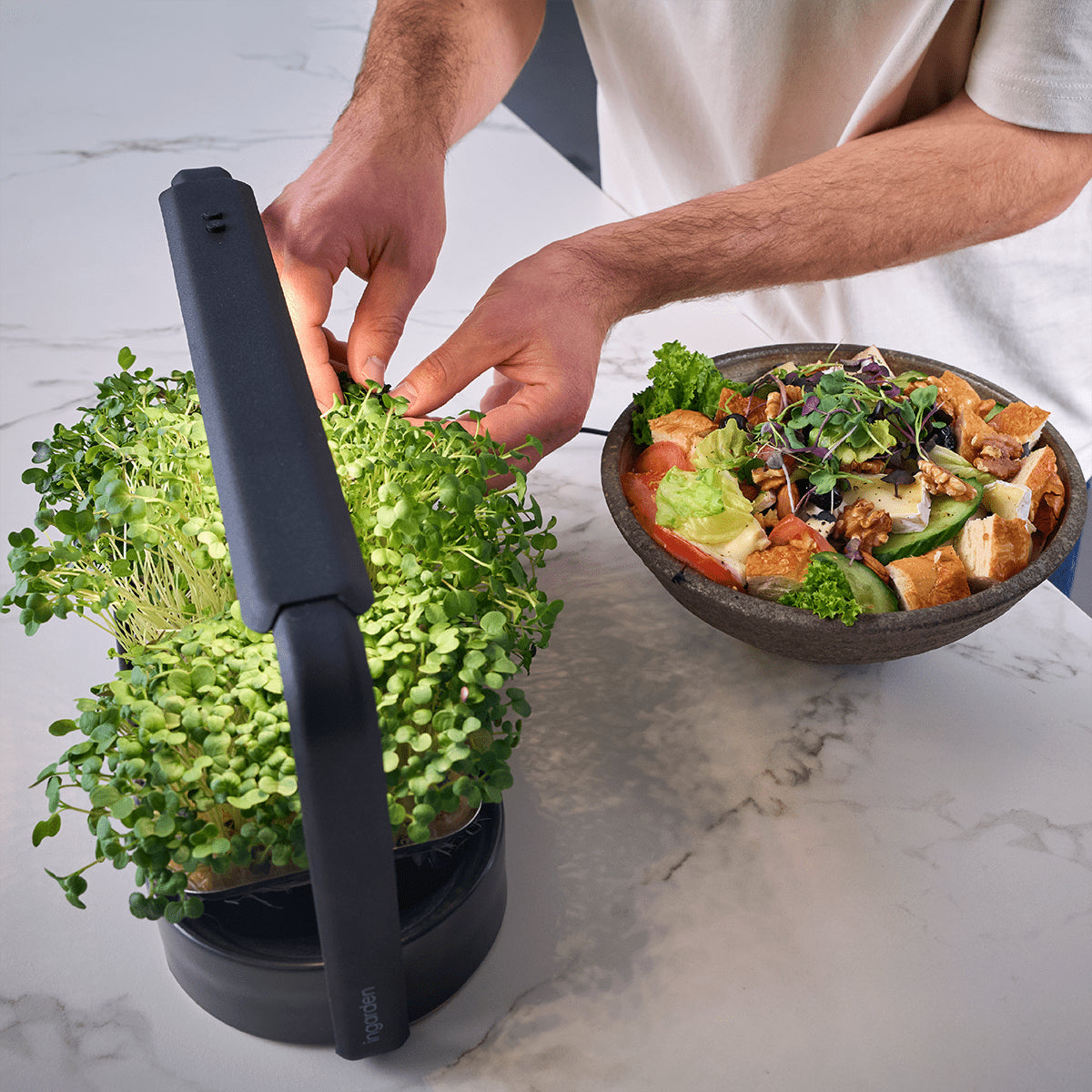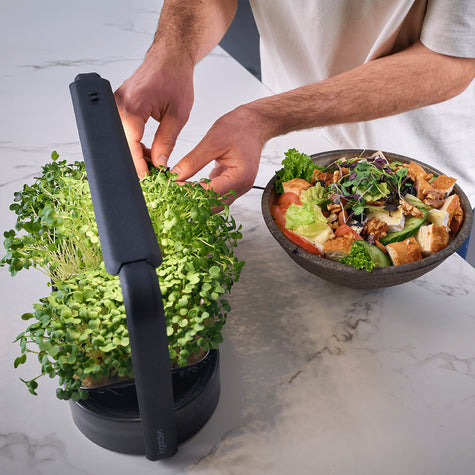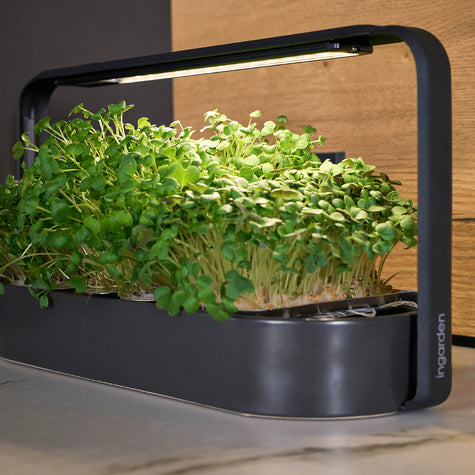What are the most important nutrients for a healthy lifestyle? From vitamin A to zinc, there are so many different nutrients that are good and vital for your body. One of the best ways to boost your diet with more vitamins is through microgreens. Microgreens are tiny, nutrient-rich seedlings that can be grown year-round in your garden. They may be tiny, but microgreens pack a punch. Here you can read more about our top 7 nutrients, and you'll see how easy it is to get plenty of them!
7. Iron: With cress microgreens
Every living organism needs iron to survive. Iron is an essential vitamin for the growth and development of our bodies. It is used to form a protein called hemoglobin, which carries oxygen from the lungs throughout the body. Contrary to popular belief, it is possible to follow a vegetarian or vegan diet and still get enough iron. Cress microgreens are rich in iron, so why not try sprinkling them over your next soup or salad?
6. Beta-carotene: With arugula microgreens
You may never have heard of beta-carotene , but don't let that put you off – beta-carotene is an extremely important provitamin (a precursor to vitamin A) that contributes to healthy skin and eyes. A great way to incorporate beta-carotene into your diet is with arugula microgreens . Fresh arugula microgreens are the perfect addition to any salad or sandwich.
5. Lutein: With mustard microgreens
Lutein is an important nutrient for long-term human health, as it helps keep cholesterol levels under control. Lutein is also a powerful antioxidant that plays a key role in fighting antigens. If you're looking to increase your lutein intake, mustard microgreens are a great option – they contain eight times more lutein per gram compared to regular mustard seeds. Mustard microgreens are a delicious addition to stir-fries and salad dressings.
4. Calcium: With broccoli microgreens
Calcium is an important mineral for babies and children, as it supports healthy bone growth. However, it's also important to continue consuming plenty of calcium throughout our adult lives to keep our bones strong. Milk is known to be rich in calcium. But a more sustainable way to ensure you're getting enough calcium is through broccoli microgreens.
3. Magnesium: With radish microgreens
Magnesium is a valuable addition to your diet, as it helps regulate blood pressure. Furthermore, magnesium has been shown to strengthen the immune system and help ward off colds year-round. An effective way to increase your magnesium intake is with radish microgreens. They make a delicious, colorful addition to a summer salad. Radish microgreens contain six times more magnesium per gram compared to mature radishes.
2. Zinc: With kale microgreens
Zinc is an important mineral for the immune system and metabolism. It helps your body fight off bacteria and viruses. To stay healthy, it's therefore advisable to ensure you get enough zinc through your diet. Growing your own kale microgreens at home provides a good dose of zinc. Kale is a well-known superfood, and kale microgreens contain five times more zinc per gram than regular kale. Kale is also rich in vitamin A and lutein.
1. Vitamin C: With red cabbage microgreens
Vitamin C is one of the most important vitamins for the human body, as it supports a healthy immune system. Vitamin C is also necessary for the growth and regeneration of body tissue. One easy way to get enough vitamin C is to eat an orange every day. Another simple and usually local way to boost your vitamin C intake is with red cabbage microgreens. They contain six times more vitamin C per gram compared to regular red cabbage.







